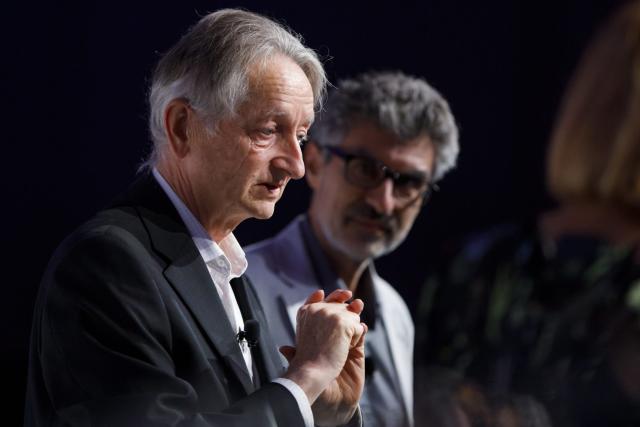
Days after quitting Google and warning the world about the danger that artificial intelligence (AI) carries with it, Dr Geoffrey Hinton, the man regarded as the “Godfather of artificial intelligence,” has stated that he will respond to requests from Twitter CEO Elon Musk, the White House, and politician Bernie Sanders. Along with Yoshua Bengio of the University of Montreal and Yann Lecun of Meta, Dr Hinton, 75, received the Turing Award in 2018 for his work on “deep learning,” which is the highest honour in the field of computer science.
Along with Yoshua Bengio of the University of Montreal and Yann Lecun of Meta, Dr Hinton, 75, received the Turing Award in 2018 for his work on “deep learning,” which is the highest honour in the field of computer science. Dr Hinton’s attempts to understand the human brain led to the development of the technology that is driving the AI revolution. The computer scientist might not offer the counsel that the world leaders are hoping to hear, though.
The US government inevitably has a lot of concerns about national security
“The US government inevitably has a lot of concerns around national security. And I tend to disagree with them. For example, I’m sure that the defence department considers that the only safe hands for this stuff are the US defence department – the only group of people to actually use nuclear weapons,” he said while speaking to The Guardian. “I’m a socialist. I think that private ownership of the media, and of the ‘means of computation’, is not good,” Hinton added.
“If you view what Google is doing in the context of a capitalist system, it’s behaving as responsibly as you could expect it to do. But that doesn’t mean it’s trying to maximise utility for all people. It’s legally obliged to maximise utility for its shareholders, and that’s a very different thing,” he said.
Hinton has been getting new requests to speak every two minutes ever since he talked on Monday about the concerns of AI that might wipe out civilization in 20 years. He hasn’t been able to provide any specific advice, though. “I don’t do policy stuff. I’m just a person who has just realised that there’s a chance that something terrible will occur. I wish I had a simple answer like, “Stop burning carbon, and everything will be fine.” But I don’t see such a straightforward answer,” he remarked.
The reason I’m not that optimistic about AI is that I don’t know any examples of more intelligent things being controlled by less intelligent things
Dr Hinton has discussed the danger that digital intelligence poses as a result of the recent rapid advancement of artificial intelligence. “For the last 50 years, I’ve been trying to make computer models that can learn stuff a bit like the way the brain learns it, in order to understand better how the brain is learning things. But very recently, I decided that maybe these big models are actually much better than the brain,” the godfather of AI said.
“We need to think hard about it now, and if there’s anything we can do. The reason I’m not that optimistic is that I don’t know any examples of more intelligent things being controlled by less intelligent things,” he added. “You need to imagine something that is more intelligent than us by the same degree that we are more intelligent than a frog. It’s all very well to say: ‘Well, don’t connect them to the internet,’ but as long as they’re talking to us, they can make us do things,” he warned.
